Arabic Language Courses
Lessons, quizzes, visual aids, vocabularies, podcasts, dialogues to make Arabic learning interesting and effective.
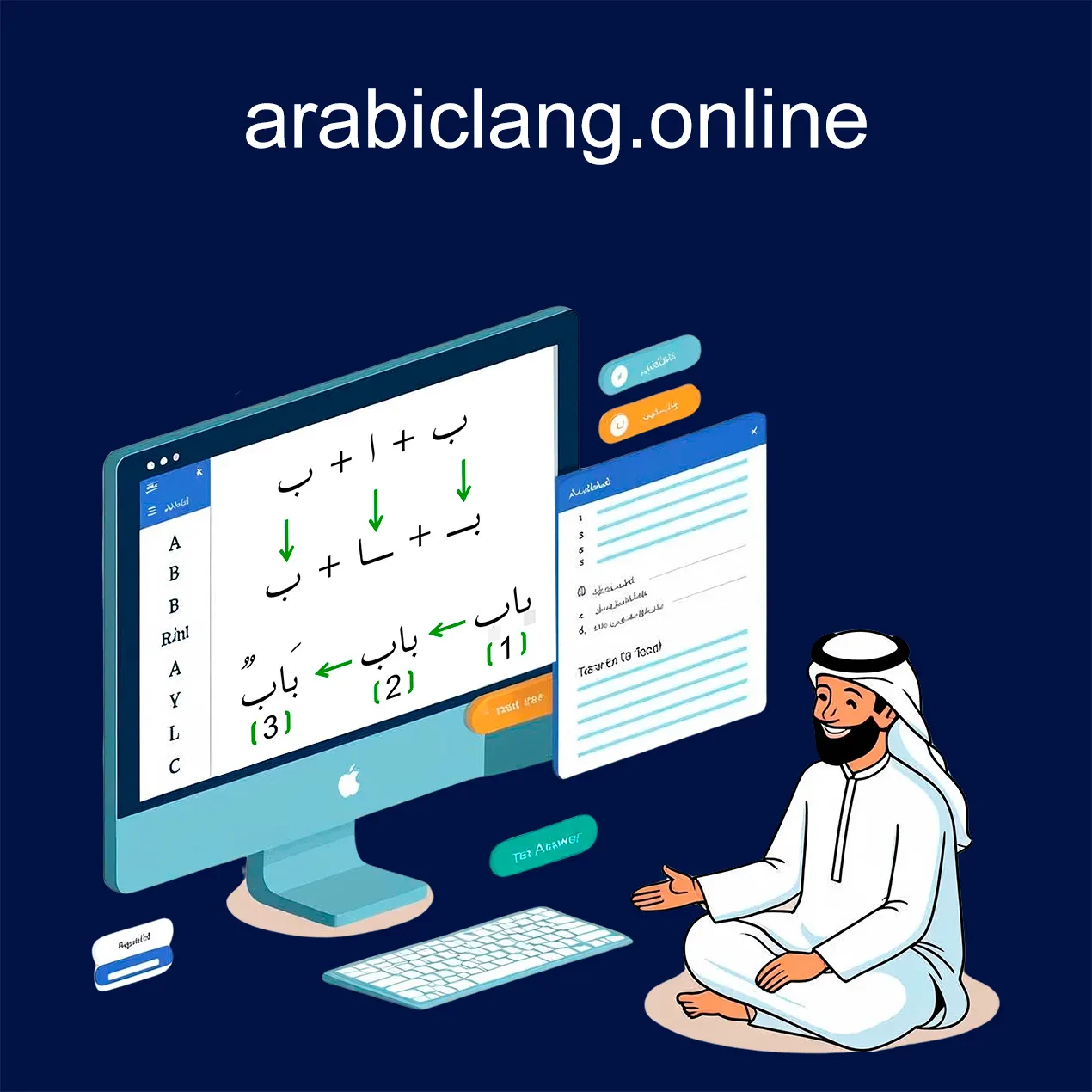
Beginner Arabic Language Course
Beginner Arabic Language Course — your first step into the rich and captivating world of Arabic. Designed for complete beginners, this course covers:
-
the Arabic alphabet and pronunciation
-
essential grammar foundations
-
everyday phrases and conversational skills
-
cultural insights and communication etiquette
Lessons are paced for comfort and clarity, with a strong focus on practical use and understanding. Whether you're a traveler, student, entrepreneur, or simply curious about the Arab world — this course opens the door.
Practice And Theory Balance
Arabic is unique in its logical grammatical structure, but memorizing theoretical rules can seem boring and tedious. To make learning Arabic easier and more interesting, all theoretical materials are colorfully designed and supported by numerous practical examples.
During each lesson, you should listen, read, speak, write and answer questions in interactive quizzes.
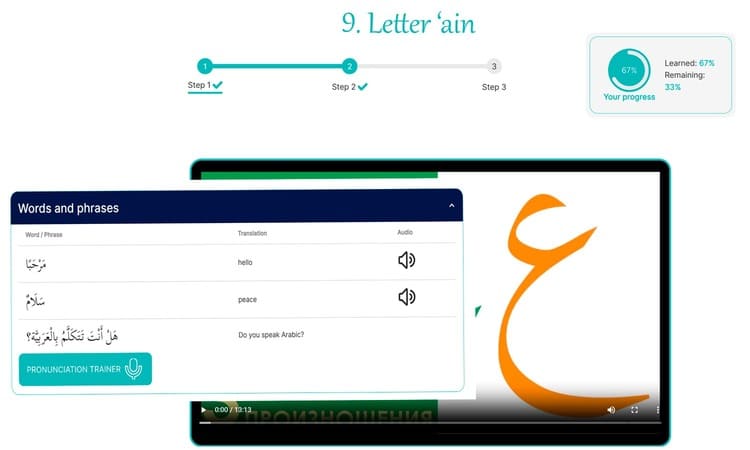
Exciting Lessons
Each lesson is divided into small steps to learn new vocabulary, grammar and practice in a balanced approach.
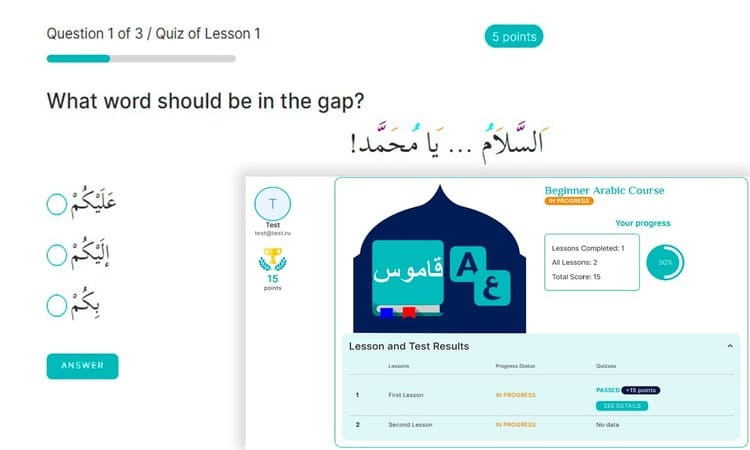
Quizzes and detailed statistics
Track your learning progress. Complete statistics on courses, completed lessons and quiz results with scores and explanations of errors.
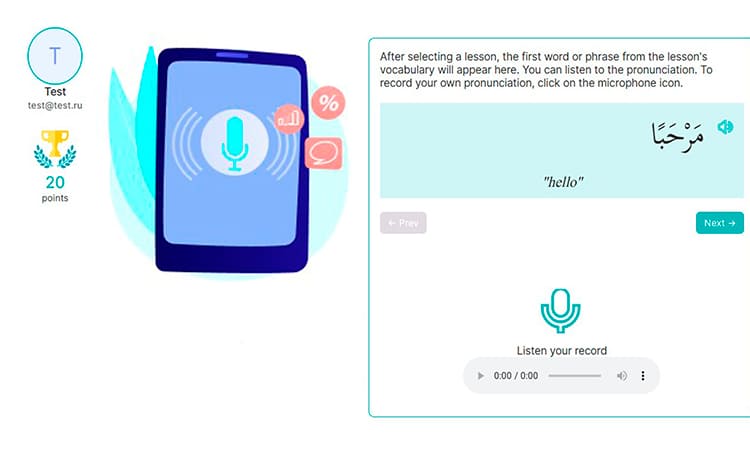
Accuracy Trainer
Listen to the standard pronunciation of words and phrases, record and compare your own, with results in % accuracy.
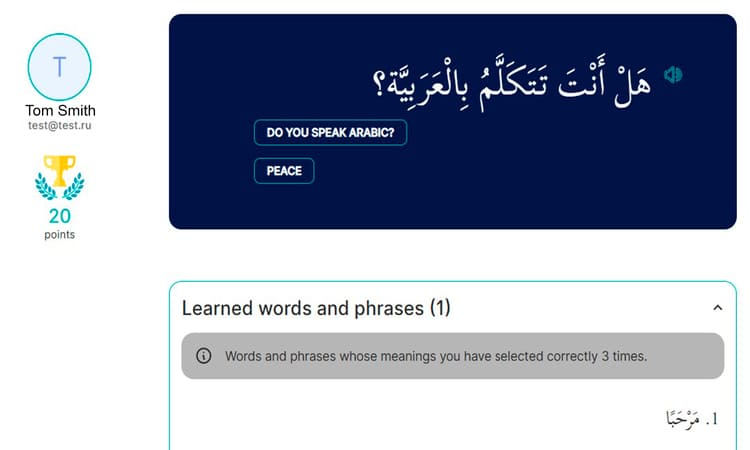
Vocabulaty Trainer
Repeat words from all the lessons you have studied in a special trainer for repetition and memorization.
Who are our courses for?
Business and jobs purposes
For those whose activities are related to communication with partners from Arab countries.
Cultural and historical researches
For those who wish to understand historical and religious texts in the original Arabic language.
For everybody
For those who are interested in learning languages, live in an Arab country or would like to get to know the Arab culture more deeply.
Some Interesting Facts About Arabic
- Arabic is the 5th most spoken language in the world according to ethnologue.com and SIL International. The popularity of Arabic is due to its wide geographical distribution – more than 20 countries in the Middle East and North Africa.
- Arabic is one of the six official languages of the United Nations.
- There is a saying in the Middle East: “Persian is the language of poets, Turkish is the language of the military, and Arabic is the language of scientists.” This statement was not born by chance. In the Middle Ages, the Arab world was at the forefront of science. The Arabic language promotes the development of logical thinking and analytical skills.
- The Arabic language is often compared to mathematics, since its morphology is built according to strictly defined formulas, and linguists classify this language as mathematical.
- Arabic is the language of the Koran, the holy book of Muslims. The world population of Muslims is 1.9 billion people, which is approximately 1/4 of the world's population. Muslims encounter Arabic in their daily religious practices, even if they are not native speakers, which makes Arabic even more popular.